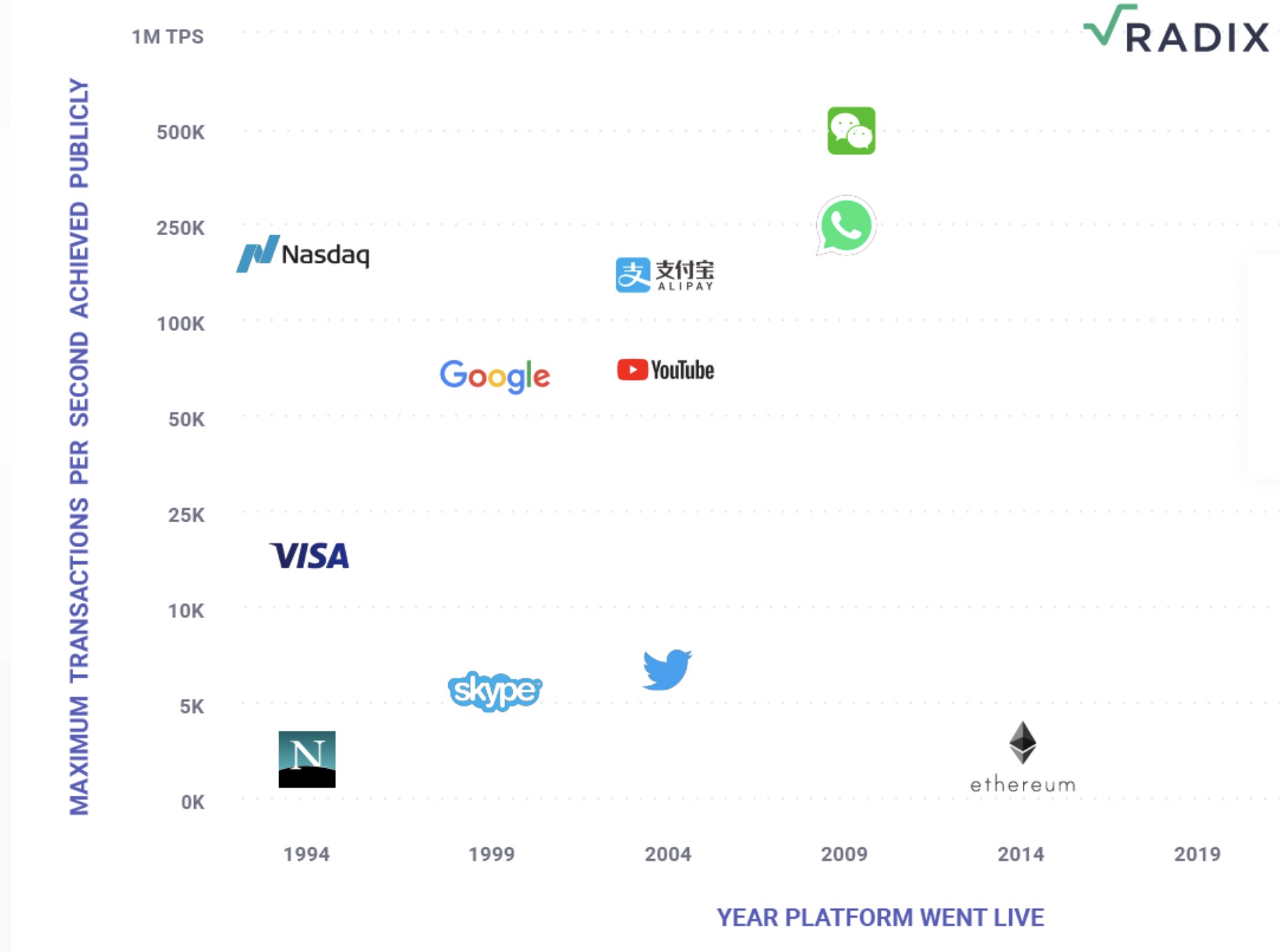
Visa, PayPal Left Choking On Dust As Radix Distributed Ledger Processes Over 1M TPS
Radix could handle more than a million transactions every second.
Scalability is a perennial problem for blockchains, sometimes it has also proved to be a controversial one. Disagreements on how best to turn Bitcoin (BTC) into a workable payments solution have splintered the community, not once but twice.
But while even a hundred transactions per second remains out of reach for the Bitcoin community, a London-based project known as Radix (XRD) found in recent tests that its own network could process more than 1.2M transactions per second.
Yes, per second.
Radix is so fast, the team say, it could (and in fact, just did) process BTC’s entire, decade-long history – roughly 400M transactions with 460M wallet addresses – in fifteen minutes and six seconds, across 1,000 Nodes.
Not only does that make Radix faster than pretty much every other distributed ledger, it also surpasses centralized solutions. It’s more than 100x faster than PayPal, 600x quicker than Visa and 5x more awesome than AliPay. The team believes this proves scalability does not have to come at the price of decentralization.

Although Radix is still in Alpha, this week’s tests are the first in a series intended to raise the network’s profile as well as showcase its unique architecture and consensus mechanism, ‘Tempo’, the result of seven years of research and development.
Trial transactions used full signatures and validations from more than a thousand nodes distributed all around the world. More tests are expected to take place through the rest of 2019 and the second test is scheduled next week.
Does Radix solve scalability?
Radix is designed as the underlying technology companies for their own payments features and applications. Fees remain low and predictable; because its architecture is non-linear, there is no danger of it suffering from bottlenecks during busy periods.
The “really impressive” tests show Radix can solve “the full trilemma in terms of scalability, decentralisation and security,” said Dermot O’Riordan, Head of Operations and Strategy at The Reserve, which invested in the company last year.
Even though it’s been around for more than seven years, Radix has kept a low-profile. Business implementation has yet to take off but sources have informed Crypto Briefing that the company is already in the process of developing payment rails for sovereign countries.
Blockchains have a reputation for being slow and expensive, O’Riordan added, but by surpassing centralized providers, Radix could prove to be more impactful and groundbreaking than anything built by the likes of PayPal or Stripe.
It could be the “tipping point for the technology”, believes O’Riordan. The fact that Facebook is already moving forward with its own cryptocurrency is “complete validation” for Radix’s use case, he says.
“Radix is presently testing at over 200x the average throughput of the world’s major credit card providers,” O’Riordan added. “As a payments rail, it is faster, more secure, and cheaper than any other alternative: centralised or decentralised.”
And it’s not helmed by Dr. Evil Mark Zuckerberg – so there’s a possibility it will actually use these incredible powers for good.
